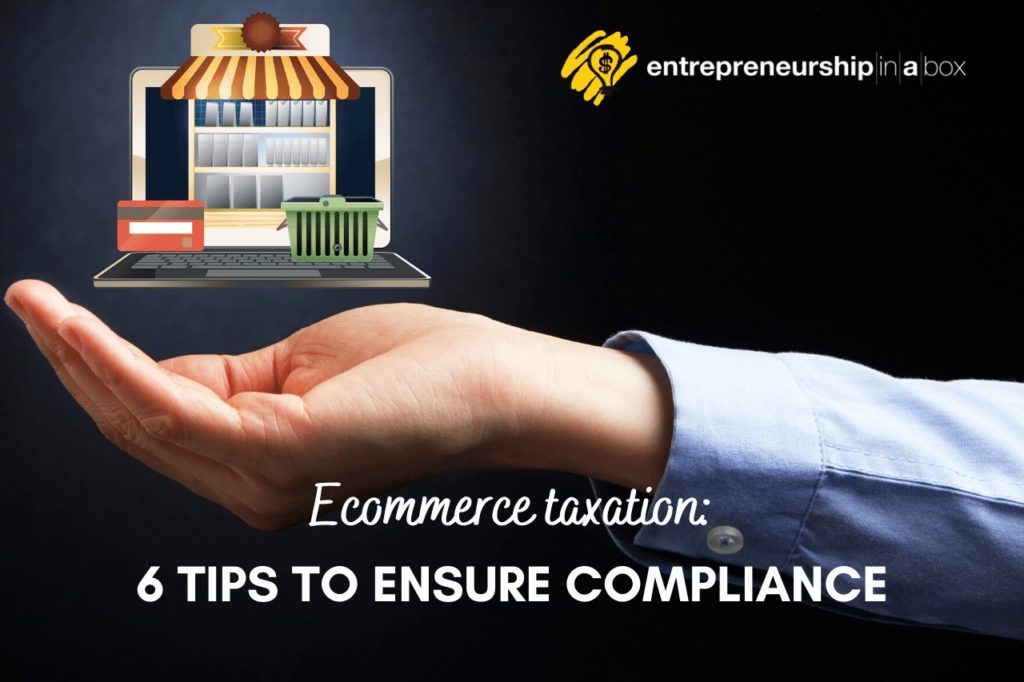If you’re an eCommerce business owner, you should be familiar with the process of sales tax compliance. While it may not the most enjoyable or exciting part of running an online business, it is extremely important.
But if you’re new to the world eCommerce and sales tax, it’s worth noting that sales tax is not all that profitable. With this in mind, you may be wondering why you should waste your time on an unprofitable administrative hassle. Well, it’s the law, that’s why.
Learn more about eCommerce taxation in this blog which outlines how to ensure your business is 100% compliant.
What Is eCommerce Sales Tax?
There are 45 states across America that all apply the law of sales tax on eCommerce items. Each state uses your business’s sales tax as part of its government budget.
Your taxes are allocated to the maintenance and expansion of schools, roads, and public safety. Sales tax is also known as consumption tax as it’s only charged when a consumer purchases goods or services.
The nature of sales tax makes it a ”pass-through” tax. This means that you don’t get to keep the tax for your business. Instead, it passes through and is allocated to the government.
Each state has its own set of rules and regulations regarding sales tax compliance. You must make sure you research local state regulations to ensure your online business is compliant.
A Guide to eCommerce Taxation: How to Guarantee Compliance
Now, not all entrepreneurs and business owners prefer to file their own taxes. This is an administrative task that is best handled by an accounting professional, such as clickandmortaraccounting.com.
These types of professionals are well-versed in the intricacies of taxation laws. They can guarantee your business is always run within the law. But if you aim to handle your own eCommerce tax compliance, these are the 6 important steps to follow:
Step 1: Determine Sales Tax Nexus
Your business’s sales tax nexus essentially binds you to the state and means you have a ”tax presence” in that region.
Basically, your online business is required to collect tax from buyers who are based in a sales tax nexus state. Your business also qualifies for sales tax nexus based on these activities:
- The location of your business — whether it’s in a warehouse, office, physical store, or your home
- The amount of staff you employ — whether this is just one or more employees who do work for your business
- Your business inventory — if your business stores inventory, this qualifies as tax nexus, even if you run the business alone
- Business sales — the amount of revenue your business generates may qualify for economic nexus
- Business affiliates — if your business is advertised by other people, in exchange for a profit
- Dropshipping — if your business uses a third-party shipping party you will qualify for tax nexus
- Tradeshow selling — even if you only sell your products at an event or tradeshow on a temporary basis, you qualify for tax nexus.
In short, this means you must do research on which customers you are required to collect the tax. This based on where they’re buying from and the nexus status of your business.
Step 2: Determine Which Products Are Taxable
As a taxpayer, you may already know that most items of tangible personal property are taxable within the United States. This includes most items that you’d buy for personal use — makeup, skincare, toothpaste, furniture, crockery, etc.
However, there are a few tax-exempt items that may be considered necessities. These include food items, clothing (aside from luxury brand items), textbooks, prescription medication, supplements, digital products, subscriptions, etc.
Before you begin your sales tax compliance, you must do research on which of your own products are taxable. It’s important to check with your state to determine whether you have to pay a sales tax on certain items or not.
Step 3: Get Your Business a Sales Tax Permit
This step requires you to legally collect sales tax from your customers by applying for a state sales tax permit. Your local State Department of Revenue will issue you this sales tax permit. You can either file for the permit online, you have a professional register for you.
If you choose to do it yourself, you should receive your sales tax permit number within 10-days. The manual registry can take two-four weeks. Registering for this permit is essential to tax compliance. Keep in mind that it’s illegal to collect sales tax from your customer without this permit.
Step 4: Establish Sales Tax Collection Across Your Website(s)
Once you have successfully registered and received your permit, it’s time to begin collecting sales tax from your customers. All online shopping platforms and marketplaces allow you to establish sales tax collection as part of their interface. There are numerous places online that offer guides on how to set up tax collection.
During this step, you’ll need to determine your sales tax nexus status per state. If you are bound by nexus, you’ll need to collect sales tax from all customers based in that state, across all sales channels. This is known as origin-based and destination-based sales tax collection.
Step 5: Accurately Report Sales Tax Collection
This is where professional help may come in handy when filing your sales tax. When the filing date swings around, it’s super important to have all your ducks in a row as the filing process can get complicated.
When filing sales taxes, you must report the amount of sales tax collected from customers based on state, county, city, and other taxing districts. Breaking down these transactions is important for accurate tax allowances. This way, each state knows which city or local area to allocate tax funds to.
Step 6: File Your Tax Return On Time
It’s crucial not to miss the sales tax filing date as this could incur major default penalties. This usually includes a monetary fine, plus interest on the outstanding taxes you owe.
You can usually file your sales taxes online, or manually via the state taxing authority website. Generally, you should aim to file your sales taxes a few days early so that you can avoid any potential filing issues and delays. If you know you’re going to be late filing your taxes, request a filing extension beforehand.
Turn Your Entrepreneurship Dreams Into a Reality
If you’re thinking about starting your own eCommerce business, we hope this guide on eCommerce taxation has helped you understand the commitments involved in merchant services. If you’re looking for more entrepreneurship advice, this site offers all you need to know on marketing, sales, management, and finance. Explore the rest of our website for more and turn your business dreams into a reality.



